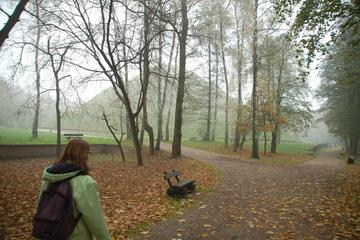Wolski Forest
TIME : 2016/2/22 13:49:14

Wolski Forest
The Wolski Forest (Las Wolski in Polish) is close to Krakòw city center but has thus far remained well off the tourist radar; it is a hilly, protected forest of beech and oak woodlands covering 422 hectares and hemmed by the River Vistula. A refuge for wildlife such as badgers, red deer and wild boar, in summer the forest is given over to cyclists, hikers and horseback riders and in winter it is riven with tracks for cross-country skiers. It has a number of manmade attractions, too. Kids will love the Przewalski horses and sleek wild cats of Kraków’s zoo and petting farm as well as the bizarre Piłsudski Mound, topped with a granite cross and dedicated to Poland's inter-war leader Józef Piłsudski in 1937.
The slightly sinister Camaldolese Monastery (Klasztor Kamedułów) sits moodily on Srebrna Góra (Silver Mountain); it was founded by Mikołaj Wolski (hence the name of the forest) in 1604 and is occupied by Camaldolite monks who shun contact with the world. Its Baroque secrets are revealed to male visitors on a daily basis but alas, women can only visit on 12 days per year (Easter weekend and Christmas Day included). Wolski Forest is also home to Przegorzały Castle, which today houses Poland’s Centre for Holocaust Studies as well as a romantic restaurant with fantastic views across the Vistula and sometimes even to the Tatra Mountains in the south.
Practical Info
Wolski Forest is eight km (five miles) west of Krakow and is not easily accessed by car. Instead take the regular bus service no. 134, which leaves about every 30 minutes from Stadion Cracovia and heads for the zoo at the center of the Wolski Forest. Here maps are available showing the direction and duration of the walking trails.
